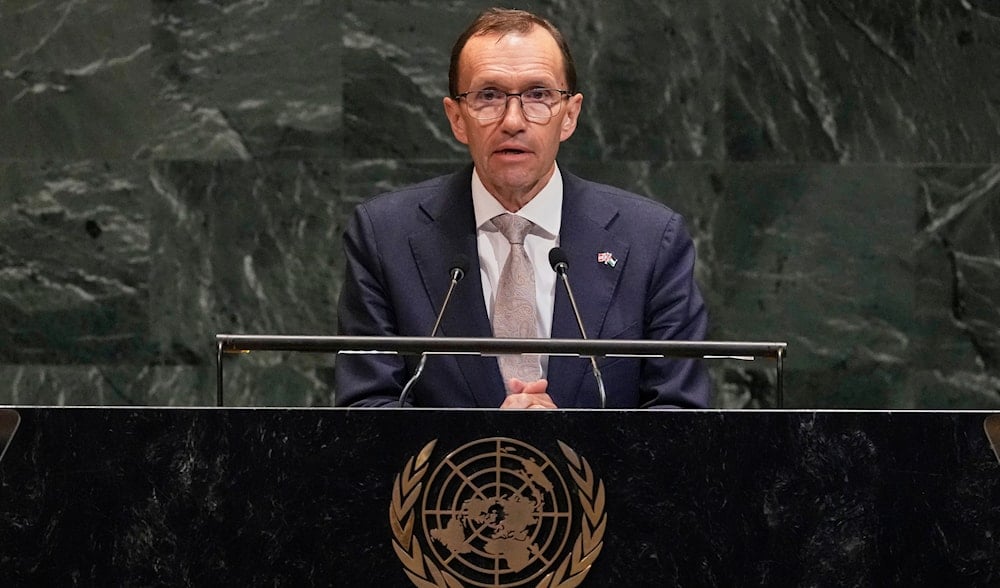Norway's wealth fund divests from six additional Israeli companies
Norway’s Wealth Fund accelerates divestment from Israeli companies tied to war crimes in Gaza and West Bank, cutting $400 million in holdings.
-

Norway Foreign Minister Espen Barth Eide addresses the United Nations General Assembly, Monday, July 28, 2025 (AP)
Norway’s $2 trillion sovereign wealth fund, the Government Pension Fund Global (GPFG), announced on Monday that it has divested from six additional companies linked to crimes in the occupied West Bank and Gaza.
The decision follows an ethics review of its Israeli investments and reflects growing scrutiny of companies tied to the occupation.
The fund did not immediately disclose the names of the six companies but said they would be published once divestment is completed. The Ethics Council, which oversees compliance with the fund’s ethical guidelines, reviews Israeli assets quarterly and continues to recommend exclusions.
Scale of divestment
The recent divestment marks the continuation of an unprecedented process that began earlier this summer. Since June 2025, the fund has divested from at least 17 Israeli companies, reducing its holdings from 61 to 38, amounting to more than $400 million in divested assets.
Grouped by sector, the Israeli companies affected so far by Norwegian divestment include:
- Defense and aerospace: Bet Shemesh Engines, a supplier of jet engine components for the Israeli military;
- Energy and infrastructure: Paz and Energix;
- Finance and Technology: eToro and Priortech;
- Retail and Real Estate: Rami Levy supermarkets, Azorim, and Sela Real Estate;
- Transportation: El Al Airlines and Delek Motors.
Political, ethical dimensions
The divestments are rooted in ethical concerns, particularly evidence of Israeli violations of international law and complicity in the occupation of Palestinian territories. Norway’s Ethics Council cited corporate involvement in military activities and infrastructure supporting the settlement enterprise.
Additionally, public opinion in Norway has played a significant role in furthering divestment. Recent polls show that 65% of Norwegians support divestment from all Israeli holdings amid the ongoing war on Gaza.
Despite this, Norway’s parliament in June rejected a proposal for the GPFG to divest from all companies operating in the occupied Palestinian territories. Instead, it has opted for targeted exclusions while allowing the Ethics Council to continue quarterly reviews.
Strategic changes in management
The fund has also terminated contracts with its three external asset managers who oversaw Israeli investments, bringing all management in-house to strengthen oversight. This restructuring reflects a broader commitment to aligning Norwegian investment practices with ethical standards.
As of mid-August, the GPFG still holds stakes in 38 Israeli companies, down from 61 in June. With six more exclusions pending, further reductions are expected in the coming weeks.

 3 Min Read
3 Min Read










